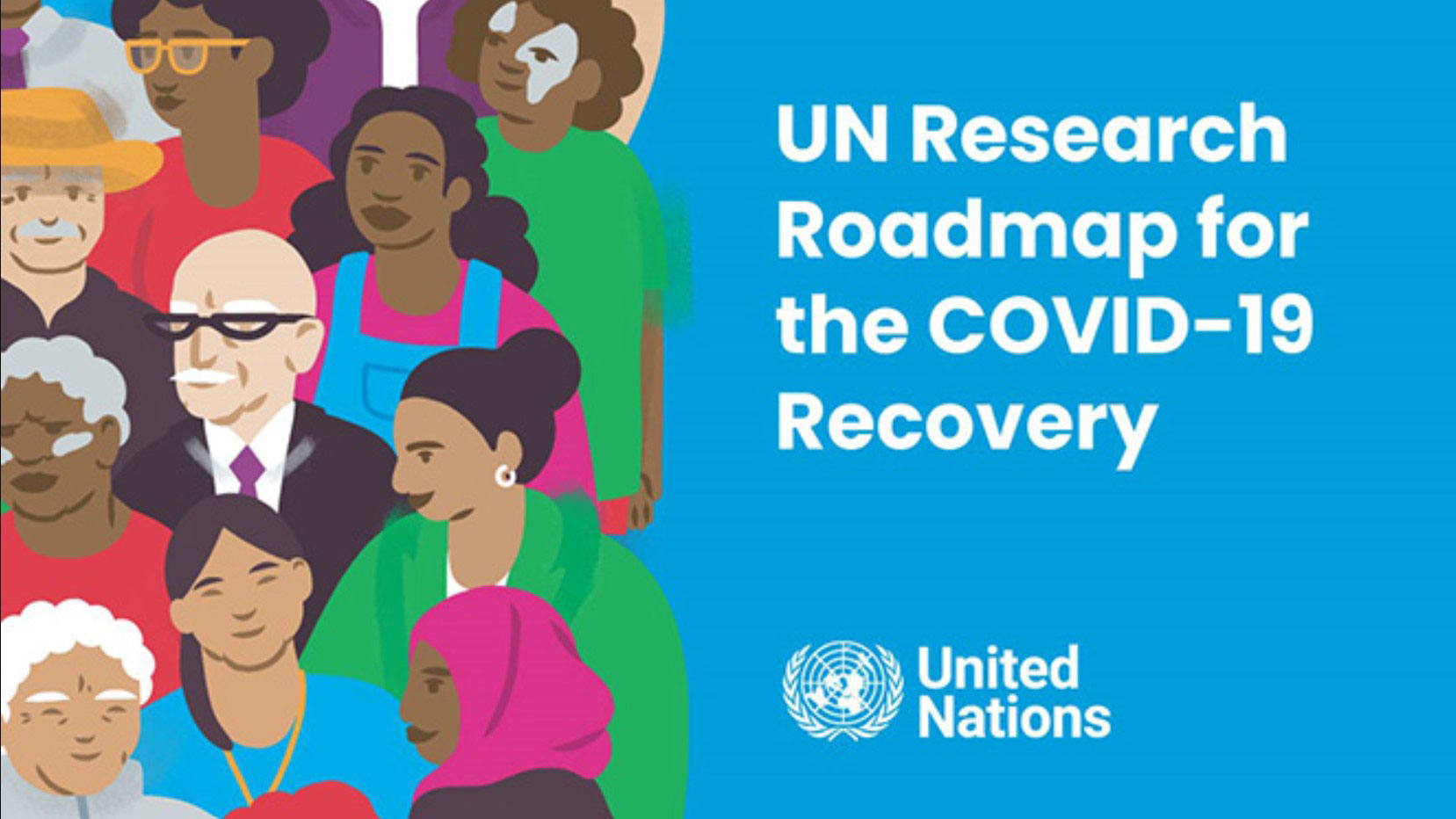Researchers from MAP Centre for Urban Health Solutions and St. Michael’s Hospital are among 250 global experts who contributed to the recently published United Nations’ Research Roadmap for the COVID-19 Recovery.
The Roadmap seeks to address the severe health, humanitarian and socio-economic consequences of the pandemic, and to guide countries toward supporting targeted research so their responses are evidence-informed and focus on those most impacted by the COVID-19 pandemic and its collateral damage to our economies, health and wellbeing.
The Roadmap highlights 25 research priorities categorized into the five socio-economic pillars identified by the UN in a framework released in April 2020. The pillars include health systems and services, social protection and basic services, economic response and recovery, macroeconomic policies and multilateral collaboration, and social cohesion and community resilience. The MAP/St. Michael’s team focused on economic response and recovery.
Among the recommendations was for countries to invest in research that focuses on how economic recovery policies can protect all workers, ensure their well-being, and promote a resilient workforce, and how workers’ incomes and jobs can be best protected when they are sick or have caregiving responsibilities.
To arrive at these recommendations, Dr. Farah Mawani, a social and psychiatric epidemiologist and postdoctoral fellow at MAP, led a rapid scoping review of existing research on the economic impacts of COVID-19 and previous disastrous events, such as the global economic crisis of 2008 and Ebola.
“When we talk about the economic response, we’re talking about immediate measures decision-makers took to respond to the crisis,” said Dr. Mawani, citing the Canada Emergency Response Benefit (CERB) as one such measure. “And when we talk about recovery, we’re talking longer-term. It’s hard to separate them because we’re still responding to a growing crisis, but we need to have a combination of interventions, policies and programs that address the crisis response and address the longer-term needs for recovery.”
“Without research, we don’t know which of those measures are effective or not or who is being left out of various policies and programs,” she said.
Dr. Mawani and her co-authors – Dr. Patricia O’Campo, Dr. Virginia Gunn, Dr. Susitha Wanigaratne, Melissa Perri, Carolyn Ziegler, Aly Kassam, Michelle Anagnostou, Angie An and Dr. Carles Muntaner – found several gaps they identified as high-priority for future research. These gaps are important not only for decision-makers and governments, but for research funding agencies and researchers so they know what kind of research they should be funding and conducting, says Dr. Mawani.
Among the gaps, the team identified that many interventions implemented both during COVID-19 and past crises did not take an equity approach. The interventions targeted some marginalized groups, but left out disabled workers, refugees, Indigenous people and precarious workers.
“They either didn’t specify who the interventions should be targeted towards, or made general, vague statements about those who are ‘vulnerable’ without accurately framing the systemic causes of inequities or vulnerabilities,” said Dr. Mawani.
Dr. Virginia Gunn, a post-doctoral fellow at MAP Centre for Urban Health Solutions and a co-author of the Roadmap, says investing in research focused on workers in informal, non-standard, and precarious employment is important, because these workers are often covered by fewer job protections and they are often not eligible for social benefits and supports such as unemployment insurance, supplemental health benefits, or minimum wage legislation.
“These workers’ disadvantage was aggravated and magnified by the COVID-19 pandemic, further widening a range of inequities between them and workers in full-time employment,” said Dr. Gunn. “Investing in research focused on this topic will help us understand the unique needs of these workers so that we can tailor our supports.”
The Roadmap also highlighted a need for research on workers with disabilities as a result of COVID-19. Dr. Mawani says there is not enough focus on this issue currently.
“We hear about workers with disabilities who are at higher risk of serious complications due to COVID-19, which of course is really important,” says Dr. Mawani. “But what hasn’t been focused on is that COVID-19 itself is causing disabilities. What does that mean in terms of increasing disability and the impact of that on workers, job protection, workplaces, and what do countries need to do to prepare for and respond to that?”
The UN says the Roadmap was developed with a “human rights lens” and great care was taken to ensure no one was left out or left behind. The realities of racism, colonialism, sexism and ableism play a role in creating inequities and the conditions for inequities to be exacerbated during the COVID-19 pandemic, says Dr. Mawani, which is why she and her co-authors explicitly named those systems in their review. She’s pleased to see that reflected in the Roadmap.
“A lot of people shy away from naming those things. But if we don’t name them, we can’t address them.”

